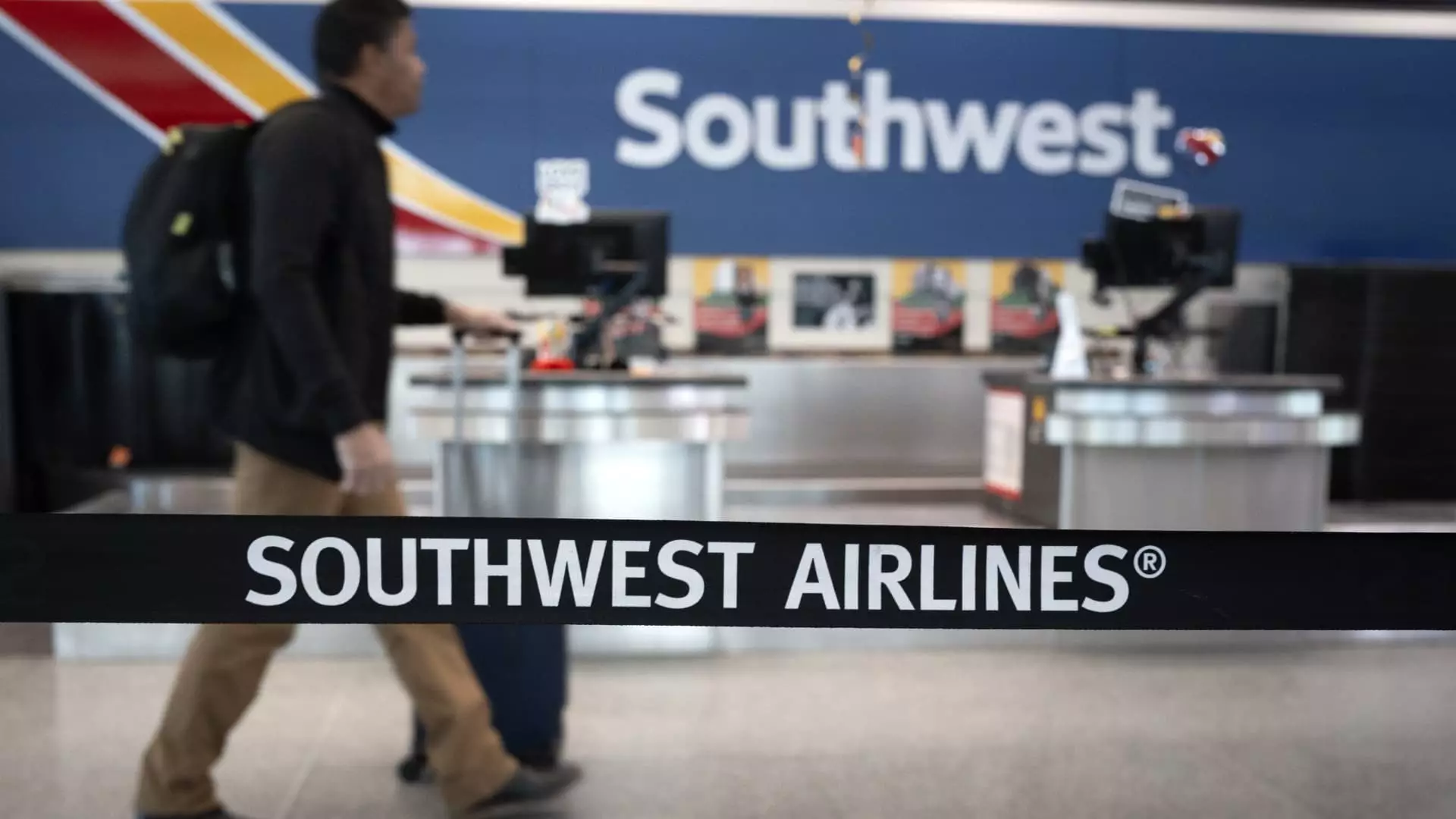As an iconic airline known for its customer-friendly policies, Southwest Airlines has set itself apart from competitors with its now-defunct “two bags fly free” policy, a hallmark of customer-centricity that lasted over 50 years. This shift, which marks the introduction of baggage fees for the first time, raises serious concerns not only about the airline itself but about the wider implications for the travel industry. Southwest has taken a bold step backward, transforming what was once an essential advantage into a source of contention. Under financial pressure from investors like Elliott Investment Management, which recently acquired stakes and pushed for these costly changes, Southwest seems more focused on cash flow than customer loyalty—a troubling trend that undermines the very spirit that endeared it to millions.
Financial Greed Over Customer Trust
It’s no secret that baggage fees have become a lucrative stream of revenue for U.S. airlines, raking in a staggering $7.3 billion last year alone. While one could argue that all airlines are simply following the market trend, Southwest’s abrupt shift feels like a betrayal to those who expected the airline to remain loyal to its commitment of providing exceptional service without hidden fees. By ruthlessly prioritizing profits over consumer trust, Southwest risks alienating its most loyal customers. Stripping away free checked bags in favor of revenue-enhancing schemes reflects a disturbing attitude that the customer is merely seen as a source of income rather than an essential partner in transport.
Basic Economy: A Step Backwards in Travel Experience
In conjunction with ending its free baggage policy, Southwest introduced basic-economy tickets that restrict flexibility and comfort. These new fare options not only devalue the travel experience by limiting changes but also prioritize profit at the expense of customer comfort. Passengers will now be among the last to board and face restrictions like expedited expiration of fare credits. It’s baffling to witness an airline—once hailed for its service and innovation—adopt a lower tier of experience typically associated with budget airlines. This transition is emblematic of a broader problem in the industry: compelling airlines to follow a stripped-down model that prioritizes price over passenger quality and experience.
Changing the Heart of Open-Seating
For decades, the open-seating strategy has been a cornerstone of Southwest’s identity, appealing to those adventurous spirits checking in early to snag the best spots. The imminent introduction of seat assignments not only nullifies this quirky yet cherished feature, but it also signals a significant departure from Southwest’s cultural framework—a change that many frequent flyers are struggling to accept. The very essence of spontaneity and excitement that drew many to the airline is being replaced by an impersonal, rigid boarding experience. This shift is reminiscent of a trend among major airlines, depriving customers of the freedom they once enjoyed.
New Challenges at the Baggage Handling Level
While Southwest plans to tackle the impending increase in carry-on luggage by enhancing overhead bin space, one cannot help but question whether this will alleviate potential chaos at the airport. Heightened competition in baggage handling, especially amidst the trauma-inducing flight delays and cancellations, poses an additional problematic variable. Will these larger bins be sufficient to accommodate the expected surge in carry-ons, or are we preparing for a new headache in fast-paced airport environments? The reliance on carry-on baggage—as an afterthought tactic to make up for lost efficiency—demonstrates a fundamental lack of foresight, inviting more complications rather than solving real issues.
What Lies Ahead for Southwest Airlines?
With each passing change, Southwest Airlines jeopardizes more than just their reputation; they risk the very future of their operational strategy. The potential financial gains may appear attractive now, but in a world increasingly dominated by competition, customer loyalty is paramount. As more customers voice their frustrations—whether it’s through social media outrage or choosing alternative airlines—the ramifications of these policy changes become increasingly evident. In the quest for higher profits, Southwest may inadvertently undermine the very customer base that fueled its growth for decades.
A Call for Balanced Solutions
Rather than leaning into the baggage fee model that most passengers have come to detest, wouldn’t it be more prudent for Southwest to innovate around genuine improvements in customer experience? Expanding services, improving operational efficiency, or enhancing customer loyalty programs could deliver benefits without putting passenger satisfaction at risk. Efforts should focus on promoting a transportation environment that favors both profitability and customer loyalty, creating a sustainable model that does not compromise quality for short-term financial fixes. This dilemma is not just about baggage; it’s about the very future of customer-centric travel.

